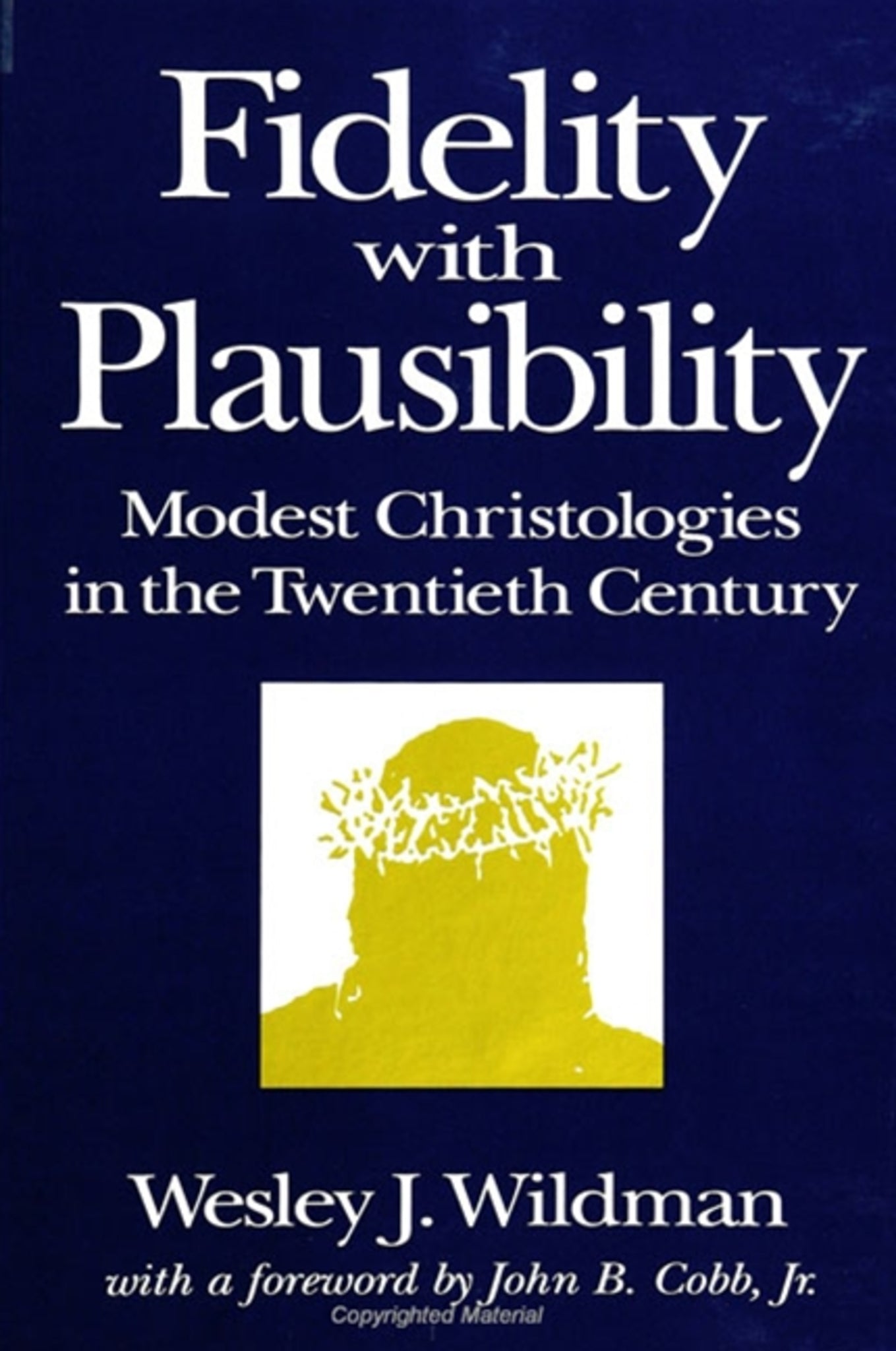We're sorry. An error has occurred
Please cancel or retry.
Fidelity with Plausibility

Some error occured while loading the Quick View. Please close the Quick View and try reloading the page.
Couldn't load pickup availability
- Format:
-
15 January 1998

The task of interpreting the religious significance of Jesus Christ takes shape in this book with the tension determined by two goals: fidelity to the classical Christological tradition, which draws our attention to Jesus in the first place, and plausibility with respect to all forms of contemporary knowledge. To ignore the classical tradition is to assume uncritically that contemporary plausibility structures are beyond question, while to forsake plausibility is to embrace the irrationalism of the theological ghetto-dweller. This book argues that maintaining this tension in our time can be achieved only with a modest interpretation of Jesus Christ, one that repudiates the hermeneutical absolutism associated with affirming that Jesus Christ is uniquely, exhaustively, unsurpassably significant for revelation and salvation.


"This book's scope is unusually wide: it truly deals with Christology across the whole range of relevant issues—philosophical, historical, scientific, religious. It has a clear, consistent thesis: the advocacy of 'modest Christologies.' The thesis has significant originality, for Wildman points out strikingly the way in which 'modest' Christologies need not be 'low' ones and the way in which Christologies may make many 'modest' sounds and still remain structurally 'absolute.' The book is organized with clarity and briskly written—rarely lingering on a subject once the argument has been made. The topic is highly significant—Wildman addresses core questions of a core subject." — S. Mark Heim, Andover Newton Theological School
Foreword
Preface
Acknowledgments
Introduction
PART I
Reflections on Ernst Troeltsch and the Origins of the Crisis of Plausibility in Contemporary Christology
Introduction to Part I
Chapter 1. Christology and the Historical Jesus
Strategies for Managing Dependence
Criticism of the Extant Dependence Strategies
Troeltsch on the Dependence of Faith and Dogmatics upon History
Chapter 2. Christology and the History of Religions
The Theology of the History of Religions
Supernaturalism and the History of Religions
The Development of Doctrine and the History of Religions
Chapter 3. Christology and the Sciences
The Philosophical Sciences
The Natural Sciences
The Human Sciences
Conclusion
PART II
Modest Christology and the Resolution of the Crisis of Plausibility in Contemporary Christology
Introduction to Part II
Chapter 4. The Absolutist Principle and Modest Christologies
The Origin and Structure of the Absolutist Principle
Absolutist Christology
Modest Christology
Chapter 5. Incarnational and Inspirational Modest Christologies: Two Case Studies
John Hick: The Logic of Modest Inspirational Christologies
The First Step: The Myth of God Incarnate
The Second Step: Jesus as Inspired
The Third Step: Jesus' Inspiration as Divine Love Incarnate
John Cobb: The Logic of Modest Incarnational Christologies
The First Step: Christ as Principle of Creative Transformation
The Second Step: Identification of Jesus as Christ
The Third Step: Affirming Christian Uniqueness
Chapter 6. Modest Christological Solutions to Internal Challenges
History: Christological Dependence on Knowledge of Jesus
Tradition: Reassessing Christological Development
Metaphysics: The Universal and the Particular
Assessment of These Three Perspectives
Chapter 7. Modest Christological Solutions to External Challenges
Ethics: Christological Responsibility?
Natural Sciences: Evolutionary Biology and Cosmology
Religious Pluralism: The Modest Consensus
Conclusion
Modest Christologies and the Quest for a Believable Jesus
Approaching the Conceptual Heart of Modest Christologies
Notes
Bibliography
Index



